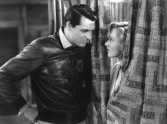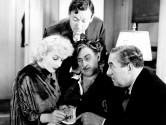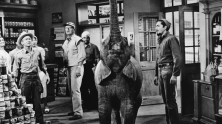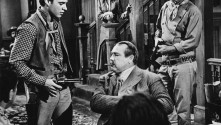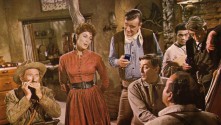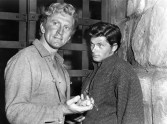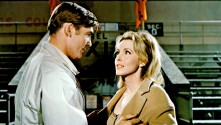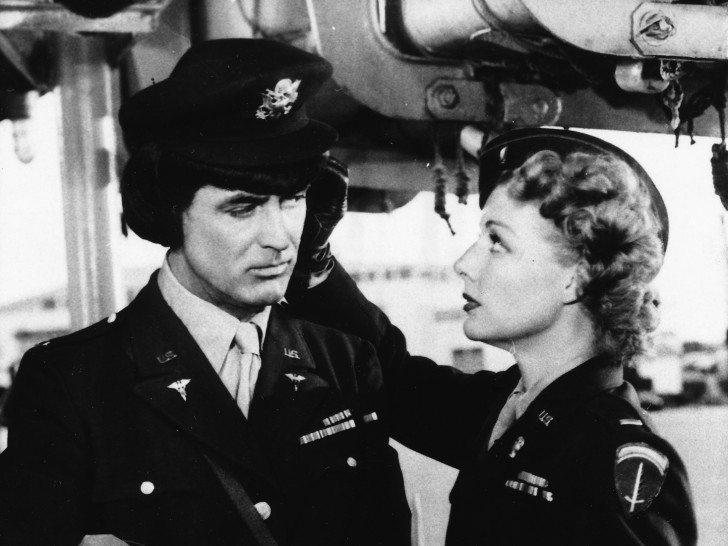
One of the most popular films of its year due largely to the novelty of seeing the world’s biggest movie star dressed in drag, I Was a Male War Bride stars Cary Grant alongside Hawks newcomer Ann Sheridan in an eccentric screwball comedy based on the memoir of a Belgian, Henri Rochard, who married an American servicewoman following WWII. In its first half, the film follows the trusty formula popularized by screwball comedies like Bringing Up Baby, with Grant and Sheridan, playing a French Army Captain and the Women’s Army Corps lieutenant with whom he’s assigned for postwar duty, masking their mutual attraction under relentless verbal sparring. When the two drop the façade halfway through, however, Hawks goes about comprehensively charting the absurdities of the era’s US Immigration Law, which enabled a war groom’s passage to America only via a loophole in the system: he must pose as a bride. The film generates much of its comedy through the relative stoicism of Grant in the face of these ludicrous bureaucratic machinations, which ultimately lead Rochard to hide out aboard a ship in women’s clothing. Hawks, ever the sophisticate, deserves credit for not leaning heavily on cheap sight gags, instead finding greater wit in the warped logic of the immigration process.
Part of film series
Screenings from this program
Gentlemen Prefer Blondes

His Girl Friday

The Big Sleep (pre-release version)

A Girl in Every Port

The Cradle Snatchers / Paid to Love

Fazil

Fig Leaves

Man's Favorite Sport?

The Crowd Roars

Today We Live


